No products in the cart.
Uncategorized
Did You Know? 20 Fun Facts About Italy
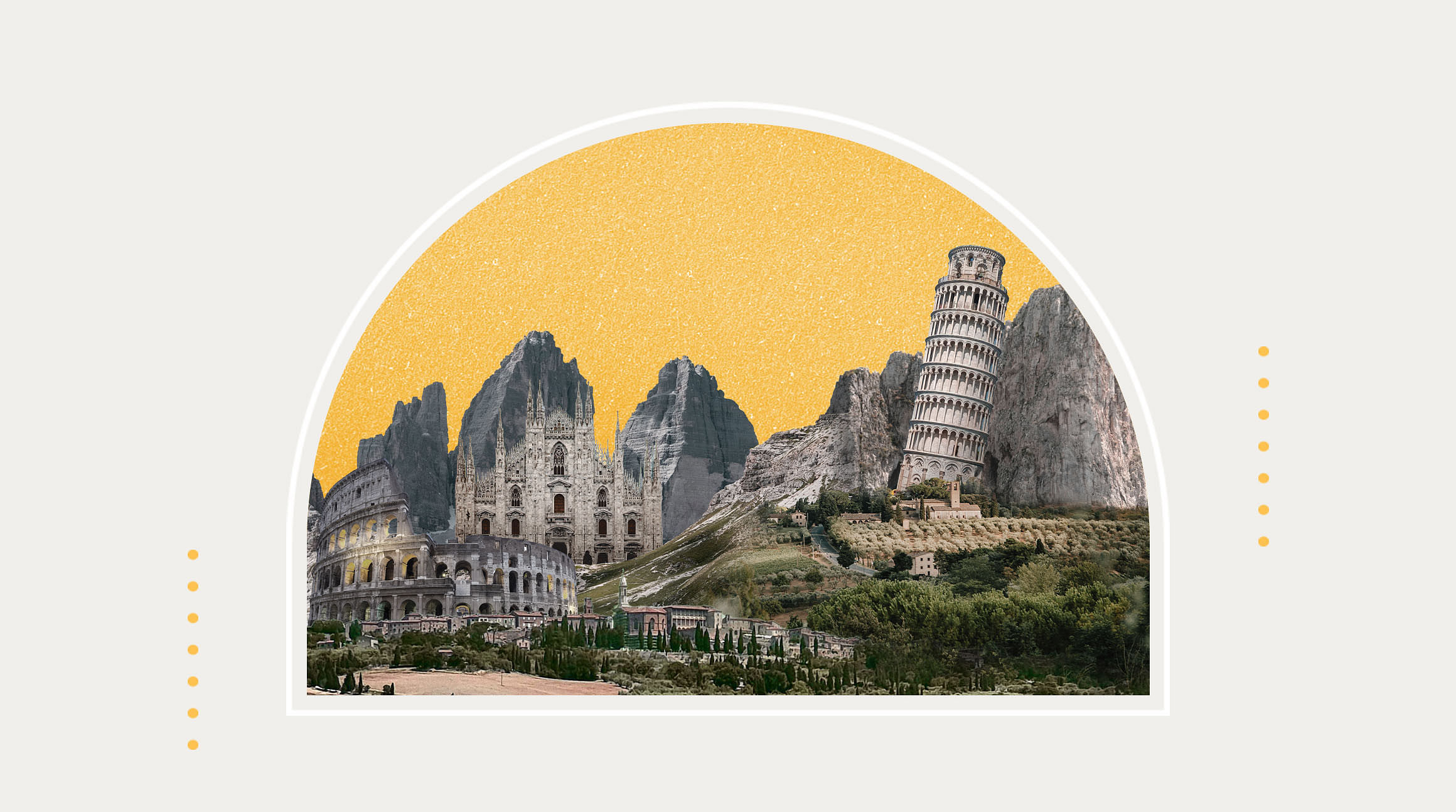
Italy, a country renowned for its rich history, vibrant culture, and delectable cuisine, is a treasure trove of fascinating stories and trivia. From the rolling hills of Tuscany to the historical streets of Rome, Italy captivates the hearts of travelers and locals alike. Here are 20 fun facts about Italy to spark your curiosity and ignite your wanderlust.
Related: Italy Travel Guide: Everything You Need To Know
1. Italy has 58 UNESCO World Heritage Sites.
Italy boasts a staggering 58 UNESCO World Heritage Sites, more than any other country in the world. These include cultural landmarks like the Colosseum, the Leaning Tower of Pisa, and the entire historical centers of cities like Florence, Rome, and Venice. The abundance of art, architecture, and archeological sites makes Italy a living museum.
2. It’s the birthplace of the Renaissance.
The Renaissance — a period that saw a renewed interest in the arts, science, and the humanities — began in Italy in the 14th century. Florence is commonly referred to as the cradle of the Renaissance, where influential artists like Leonardo da Vinci and Michelangelo created some of their most memorable works.
3. The Vatican City is a country within a country.
Vatican City, nestled in the heart of Rome, is the world’s smallest sovereign state, both by area and population. It is the spiritual and administrative center of the Roman Catholic Church and is home to the Pope. Despite its small size, the Vatican boasts some of the world’s most famous artworks, including the Sistine Chapel ceiling painted by Michelangelo.
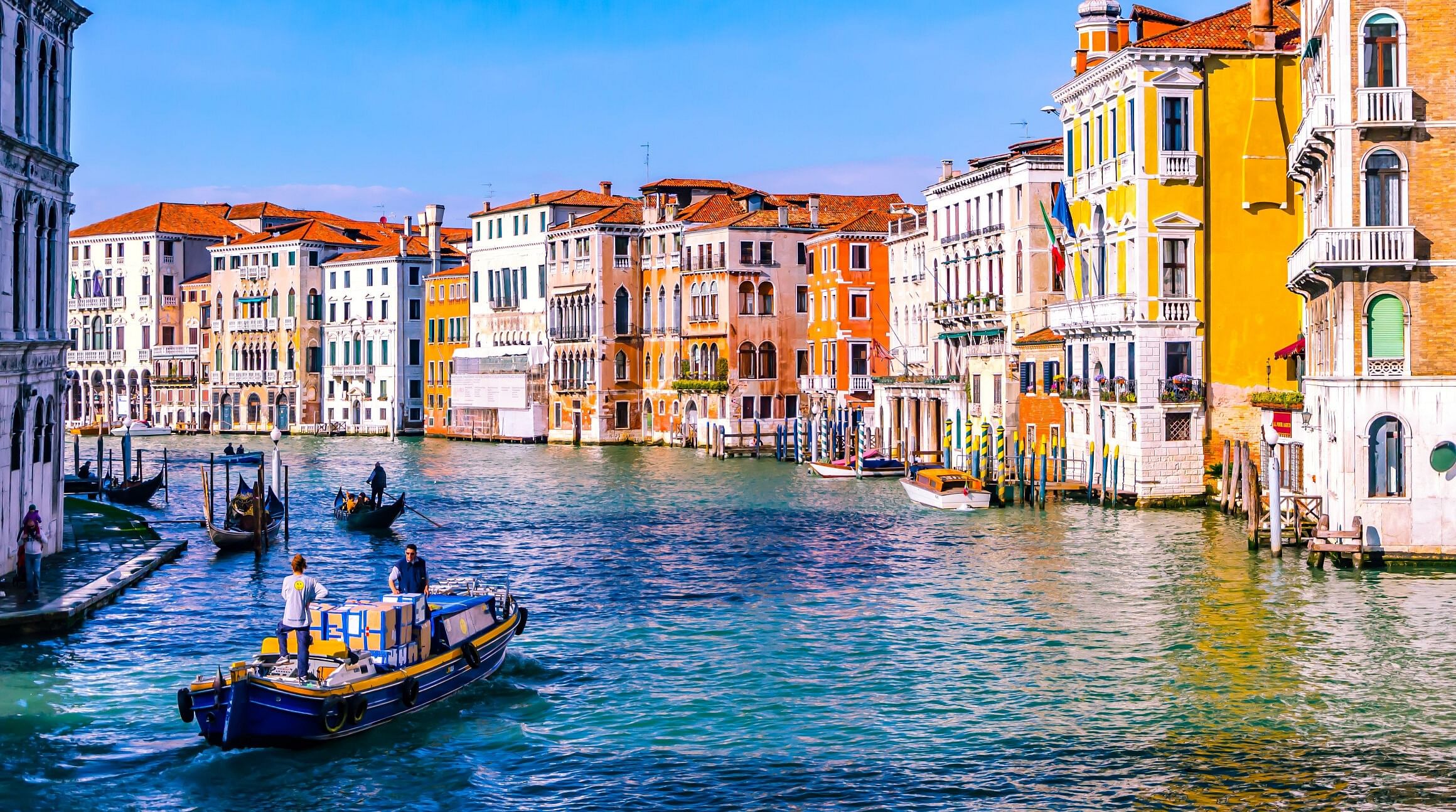 Unsplash
Unsplash
4. Venice has 150 canals and more than 400 bridges.
Venice, one of Italy’s most iconic cities, is famous for its network of canals that serve as the primary means of transportation. The city is built on an archipelago of 118 islands formed by about 150 canals in a shallow lagoon, serviced by over 400 bridges.
Related: The 20 Most Beautiful Places in Italy
5. An Italian invented the first eyeglasses.
The first eyeglasses were made in Italy in the late 1200s. An Italian named Salvino D’Armate is credited with inventing the first wearable eyeglasses. The oldest surviving pair, dated to circa 1400, can be found at the Correr Museum in Venice.
6. Italian is the language of Western classical music.
Musical notation and many of the terms used in music today, such as opera, sonata, and concerto, are Italian. Italy’s influence on the development of music from the Medieval period onwards is unparalleled, making it a foundational pillar of Western classical music.
 Unsplash
Unsplash
7. Mount Etna is Europe’s most active volcano.
Locally called ‘Mongibello,’ Mount Etna is Europe’s largest and most active volcano. It erupts around 200 times per year, a number that continues to increase annually. Etna’s persistent activity is a key characteristic that sets it apart. Its eruptions are frequent but generally not explosive, emitting rivers of lava that slowly creep down its slopes.
8. Italy is home to the oldest university in Europe.
The University of Bologna, founded in 1088, is the oldest continually operating university in Europe. Its founding paved the way for the development and spread of higher education across the continent.
9. An Italian invented the espresso machine.
Italians are credited with the development of the espresso machine. Angelo Moriondo of Turin patented the first ‘instantaneous’ coffee beverage-making device in 1884. Today, Italy has over 160,000 coffee bars, and true Italian espresso culture is designated UNESCO Intangible Cultural Heritage.
 Unsplash
Unsplash
10. There are over 350 types of pasta.
While pasta dates back to ancient and medieval times, it became widespread in Italy during the 13th century. With over 350 different pasta shapes, the country takes its pasta seriously, viewing it as more than just sustenance — it’s a culinary art form with precise craftsmanship.
11. Italy has one of the world’s oldest populations.
Italians have one of the highest life expectancy rates in the world, often attributed to their Mediterranean diet, which emphasizes fresh vegetables, olive oil, fish, and wine. The village of Acciaroli is especially famous for its centenarians and has been the subject of numerous studies.
12. Italians use over 250 hand gestures.
Italians are famous for their expressive hand gestures. There are over 250 gestures that Italians use in everyday conversation. These gestures are so unique and intrinsic to Italian communication that they’ve been the subject of countless studies.
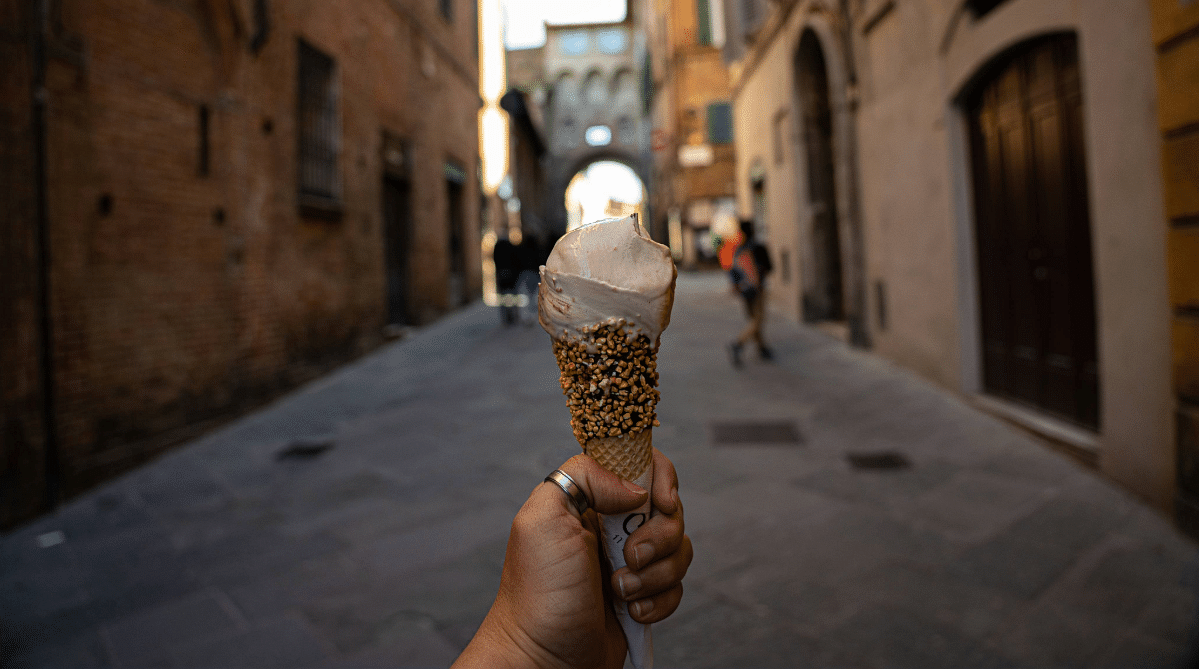
Unsplash
13. Gelato was invented in Florence during the Renaissance.
In the 16th century, Bernardo Buontalenti, a Florentine architect and artist, is believed to have created the precursor to modern gelato during a banquet held by the Medici family. Combining milk, sugar, and fruit flavors, Buontalenti’s creation delighted the taste buds of Renaissance nobility and sparked a culinary revolution.
14. The first pizzeria was opened in Italy in 1830.
Antica Pizzeria Port’Alba, opened its doors in Naples in 1830. Founded by Raffaele Esposito, this historic eatery set the standard for the Neapolitan-style pizza that has since gained global fame.
15. Rome is called the “city of fountains.”
Rome is home to more than 2,000 public fountains, more than any other city in the world. Most notably, the Trevi Fountain attracts millions of visitors each year.
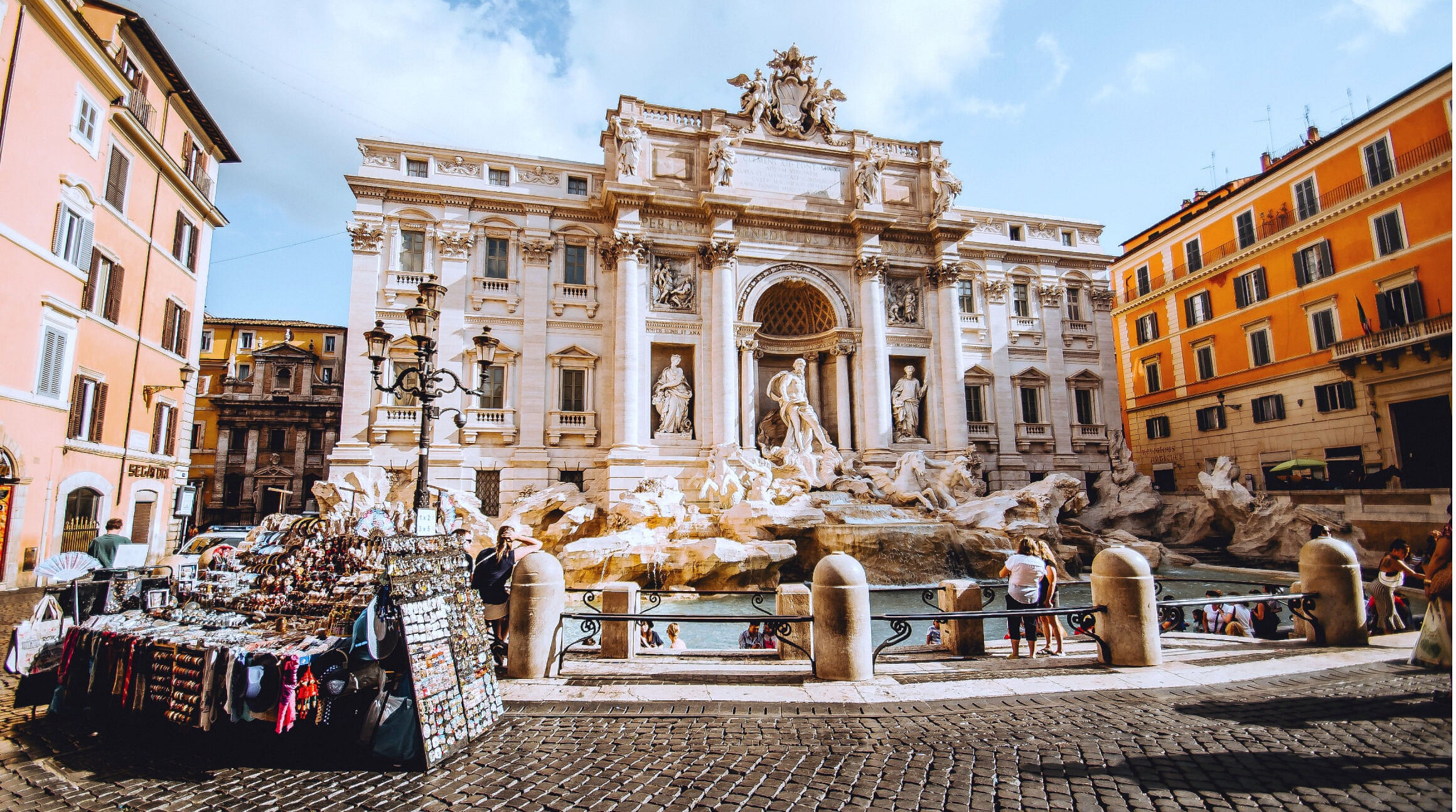 Unsplash
Unsplash
16. Tourists throw €3,000 into the Trevi fountain every day.
Legend has it that tossing a coin into the fountain ensures a return to Rome, a superstition that has captured the imagination of countless tourists over the years.
17. An Italian invented the piano.
Bartolomeo Cristofori, an Italian instrument maker, is credited with inventing the piano in the early 18th century. His innovative design paved the way for one of the most beloved musical instruments worldwide.
18. The Leaning Tower of Pisa is not the only leaning tower in Italy.
The bell tower of the church of San Martino dei Battuti in Venice, although not as widely recognized, also possesses a distinctive tilt. Situated in the historic Cannaregio district, this 15th-century bell tower leans at a slight angle, adding to the enchanting character of Venice’s skyline.
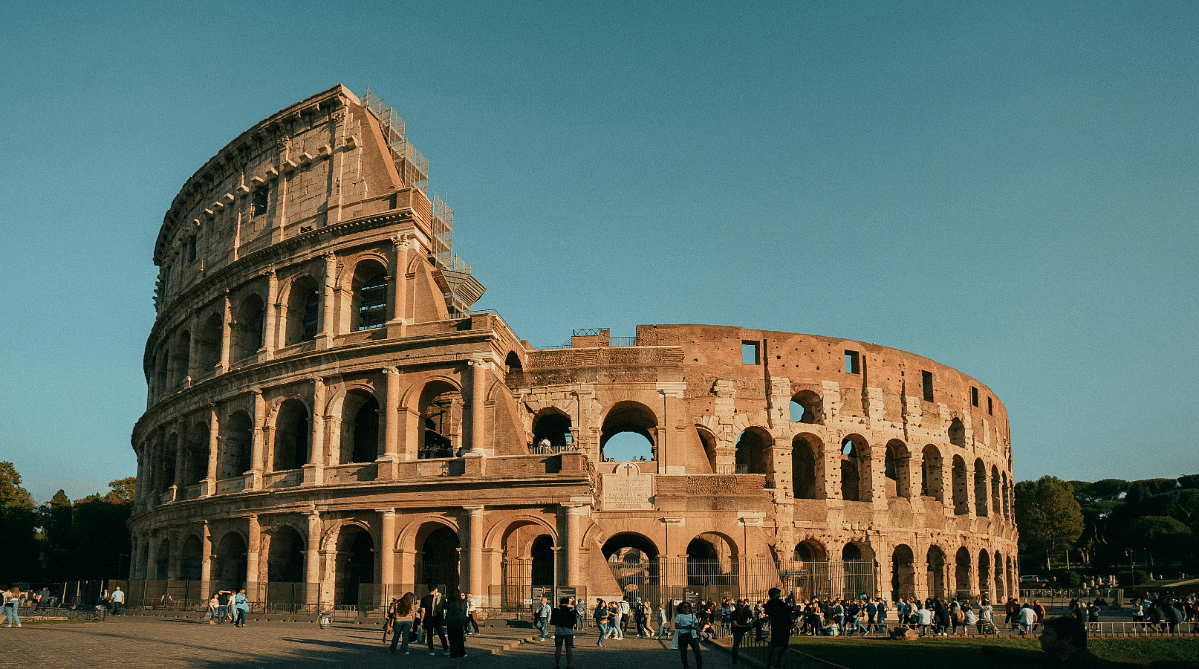 Unsplash
Unsplash
19. The Colosseum in Rome is the largest ancient amphitheater ever built.
Completed in 80 AD under the emperor Vespasian, this architectural marvel could accommodate up to 80,000 spectators who gathered to witness gladiatorial contests, mock naval battles, and other public spectacles.
20. The Italian flag is known as “Il Tricolore.”
The Italian flag, also known as the ‘Tricolore,’ has its origins in the French flag brought to Italy by Napoleon in 1797. The green, white, and red colors represent hope, faith, and charity, respectively, and are a symbol of the country’s national identity.
Are you planning a trip to Italy? Stay connected with an Italy eSIM from Airalo.
